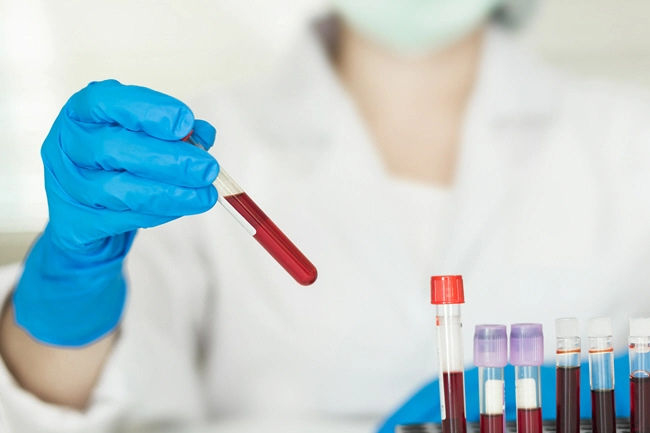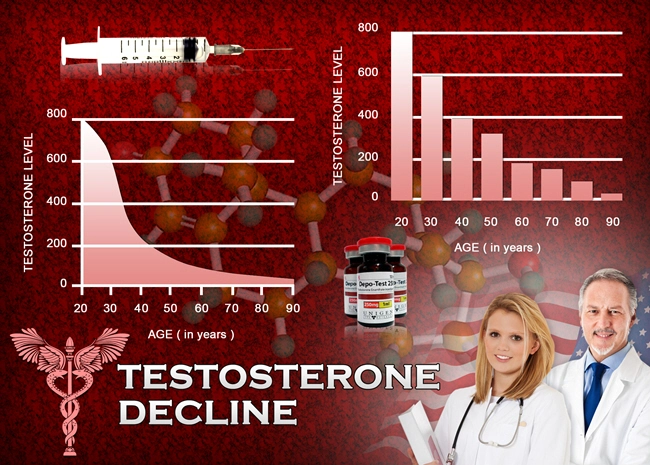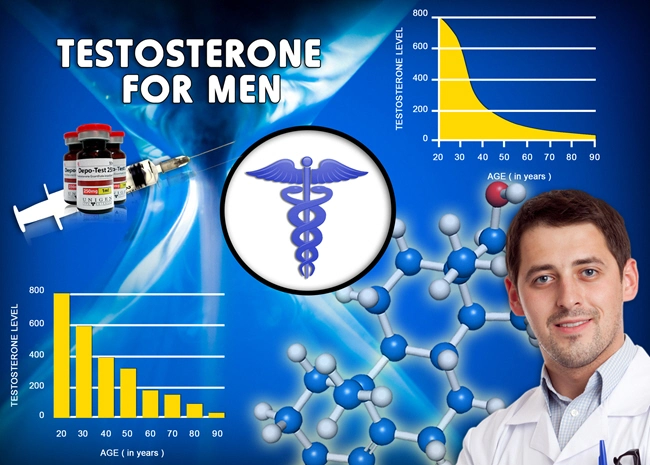
Introduction to Testosterone Cypionate
Testosterone Cypionate is a widely used injectable form of testosterone replacement therapy (TRT) among American men suffering from hypogonadism. As a synthetic version of the primary male sex hormone, it plays a crucial role in maintaining various bodily functions, including muscle mass, bone density, and libido. However, the implications of its use on the renal system have sparked interest and concern within the medical community.
Understanding the Renal System
The renal system, comprising the kidneys, ureters, bladder, and urethra, is vital for filtering waste from the blood, regulating electrolytes, and maintaining fluid balance. Any disruption to this system can lead to significant health issues, making it imperative to understand how exogenous hormones like Testosterone Cypionate might affect renal function.
Research on Testosterone Cypionate and Kidney Function
Recent studies have begun to explore the relationship between Testosterone Cypionate and kidney health. A study published in the *Journal of Clinical Endocrinology & Metabolism* found that while testosterone therapy can improve overall health markers in hypogonadal men, there is a potential risk of renal impairment, particularly in those with pre-existing kidney conditions. The research suggests that testosterone may increase serum creatinine levels, a marker of kidney function, which could indicate a decline in renal health.
Mechanisms of Renal Impact
The mechanisms by which Testosterone Cypionate might affect the kidneys are multifaceted. One hypothesis is that testosterone may induce changes in blood pressure and fluid retention, which can strain the kidneys. Additionally, testosterone can influence the renin-angiotensin-aldosterone system, which plays a key role in regulating blood pressure and fluid balance. Alterations in this system could lead to increased pressure on the kidneys, potentially exacerbating renal issues.
Clinical Observations and Case Studies
Clinical observations and case studies have provided further insight into the renal effects of Testosterone Cypionate. For instance, a case series reported in the *American Journal of Kidney Diseases* highlighted several instances where men on TRT experienced worsening kidney function. These cases underscore the importance of monitoring renal health in patients undergoing testosterone therapy, especially those with a history of renal disease.
Monitoring and Management Strategies
Given the potential renal risks associated with Testosterone Cypionate, it is crucial for healthcare providers to implement monitoring and management strategies. Regular assessment of renal function through blood tests, such as serum creatinine and estimated glomerular filtration rate (eGFR), is recommended for men on TRT. Additionally, patients should be educated about the signs of kidney dysfunction, such as changes in urine output or swelling in the legs, and encouraged to report any such symptoms promptly.
Balancing Benefits and Risks
While the potential renal effects of Testosterone Cypionate warrant careful consideration, it is also important to balance these risks against the benefits of TRT. For many American men, testosterone therapy significantly improves quality of life by alleviating symptoms of hypogonadism, such as fatigue, depression, and reduced libido. Therefore, a personalized approach to TRT, tailored to the individual's health profile and closely monitored, is essential.
Conclusion
In conclusion, while Testosterone Cypionate offers substantial benefits for American men with hypogonadism, its impact on the renal system cannot be overlooked. Ongoing research and vigilant monitoring are necessary to ensure that the benefits of TRT are maximized while minimizing potential renal risks. By understanding and managing these risks, healthcare providers can better support their patients in achieving optimal health outcomes.
Contact Us Today For A Free Consultation
Dear Patient,
Once you have completing the above contact form, for security purposes and confirmation, please confirm your information by calling us.
Please call now: 1-800-380-5339.
Welcoming You To Our Clinic, Professor Tom Henderson.

- Testosterone Cypionate: Benefits, Risks, and Holistic Management for Aging American Men [Last Updated On: March 1st, 2025] [Originally Added On: March 1st, 2025]
- Testosterone Cypionate: Enhancing Male Health Through Injection Therapy [Last Updated On: March 17th, 2025] [Originally Added On: March 17th, 2025]
- Testosterone Cypionate's Impact on Sleep Patterns in American Males: A Comprehensive Analysis [Last Updated On: March 18th, 2025] [Originally Added On: March 18th, 2025]
- Testosterone Cypionate Stigma in American Males: Origins, Impacts, and Destigmatization Strategies [Last Updated On: March 18th, 2025] [Originally Added On: March 18th, 2025]
- Strategies to Minimize Side Effects of Testosterone Cypionate in American Men [Last Updated On: March 18th, 2025] [Originally Added On: March 18th, 2025]
- Testosterone Cypionate: Enhancing Weight Management in American Men [Last Updated On: March 19th, 2025] [Originally Added On: March 19th, 2025]
- Navigating Insurance for Testosterone Cypionate Therapy: A Guide for American Males [Last Updated On: March 19th, 2025] [Originally Added On: March 19th, 2025]
- Testosterone Cypionate: Impacts on Prostate Health in American Men [Last Updated On: March 19th, 2025] [Originally Added On: March 19th, 2025]
- Testosterone Cypionate: Benefits, Risks, and Long-Term Health Impacts on American Men [Last Updated On: March 19th, 2025] [Originally Added On: March 19th, 2025]
- Testosterone Cypionate's Impact on Mental Clarity in American Men: Experiences and Insights [Last Updated On: March 19th, 2025] [Originally Added On: March 19th, 2025]
- Testosterone Cypionate Therapy: Costs, Coverage, and Financial Planning for American Males [Last Updated On: March 20th, 2025] [Originally Added On: March 20th, 2025]
- Testosterone Cypionate: Managing Chronic Conditions in American Men [Last Updated On: March 20th, 2025] [Originally Added On: March 20th, 2025]
- Testosterone Cypionate: Effects on Skin Health and Management Strategies for American Men [Last Updated On: March 21st, 2025] [Originally Added On: March 21st, 2025]
- Monitoring Testosterone Cypionate Levels: Essential Guide for Safe TRT in American Men [Last Updated On: March 22nd, 2025] [Originally Added On: March 22nd, 2025]
- Testosterone Cypionate: A Dual Benefit for Diabetes Management in American Males [Last Updated On: March 23rd, 2025] [Originally Added On: March 23rd, 2025]
- Testosterone Cypionate: A Promising Treatment for Depression in American Males [Last Updated On: March 23rd, 2025] [Originally Added On: March 23rd, 2025]
- Testosterone Cypionate: Debunking Myths and Clarifying Facts for American Men's Health [Last Updated On: March 23rd, 2025] [Originally Added On: March 23rd, 2025]
- Testosterone Cypionate's Impact on Hearing in American Men: A Comprehensive Review [Last Updated On: March 24th, 2025] [Originally Added On: March 24th, 2025]
- Testosterone Cypionate: A Vital Tool for American Transgender Males' Transition [Last Updated On: March 24th, 2025] [Originally Added On: March 24th, 2025]
- Testosterone Cypionate: Enhancing Libido in American Men - Benefits and Risks [Last Updated On: March 24th, 2025] [Originally Added On: March 24th, 2025]
- Testosterone Cypionate: Legal Status and Usage Guidelines for American Males [Last Updated On: March 24th, 2025] [Originally Added On: March 24th, 2025]
- Testosterone Cypionate's Impact on Immune Function in American Males: A Review [Last Updated On: March 24th, 2025] [Originally Added On: March 24th, 2025]
- Testosterone Cypionate's Impact on Blood Pressure in American Men: A Comprehensive Review [Last Updated On: March 25th, 2025] [Originally Added On: March 25th, 2025]
- Testosterone Cypionate: Enhancing Emotional Well-being in American Males [Last Updated On: March 25th, 2025] [Originally Added On: March 25th, 2025]
- Testosterone Cypionate: Benefits, Risks, and Safety for American Males on TRT [Last Updated On: March 25th, 2025] [Originally Added On: March 25th, 2025]
- Testosterone Cypionate's Impact on Vision Health in American Males: A Comprehensive Review [Last Updated On: March 25th, 2025] [Originally Added On: March 25th, 2025]
- Testosterone Cypionate: Enhancing Body Composition in American Men [Last Updated On: March 25th, 2025] [Originally Added On: March 25th, 2025]
- Testosterone Cypionate's Role in Injury Recovery: Benefits, Risks, and Considerations [Last Updated On: March 25th, 2025] [Originally Added On: March 25th, 2025]
- Testosterone Cypionate: A Promising Treatment for Osteoporosis in American Males [Last Updated On: March 25th, 2025] [Originally Added On: March 25th, 2025]
- Testosterone Cypionate's Impact on Red Blood Cell Production in American Men [Last Updated On: March 25th, 2025] [Originally Added On: March 25th, 2025]
- Testosterone Cypionate: Cardiovascular Benefits and Risks in American Men [Last Updated On: March 25th, 2025] [Originally Added On: March 25th, 2025]
- Testosterone Cypionate: A Promising Treatment for Autoimmune Disorders in American Men [Last Updated On: March 25th, 2025] [Originally Added On: March 25th, 2025]
- Testosterone Cypionate: A Promising Treatment for Chronic Fatigue in American Males [Last Updated On: March 25th, 2025] [Originally Added On: March 25th, 2025]
- Testosterone Cypionate: Muscle Growth Benefits vs. Joint Health Risks for American Men [Last Updated On: March 25th, 2025] [Originally Added On: March 25th, 2025]
- Testosterone Cypionate's Impact on Thyroid Function in American Men: A Review [Last Updated On: March 25th, 2025] [Originally Added On: March 25th, 2025]
- Testosterone Cypionate and Hair Loss in American Males: Mechanisms, Risks, and Management [Last Updated On: March 26th, 2025] [Originally Added On: March 26th, 2025]
- Testosterone Cypionate's Impact on Cholesterol Levels in American Males: A Comprehensive Analysis [Last Updated On: March 26th, 2025] [Originally Added On: March 26th, 2025]
- Testosterone Cypionate: Enhancing Cognitive Function in American Men [Last Updated On: March 26th, 2025] [Originally Added On: March 26th, 2025]
- Testosterone Cypionate's Impact on Liver Function in American Males: Risks and Monitoring [Last Updated On: March 26th, 2025] [Originally Added On: March 26th, 2025]
- Testosterone Cypionate: A Novel Treatment for Skin Conditions in American Males [Last Updated On: March 27th, 2025] [Originally Added On: March 27th, 2025]
- Testosterone Cypionate: Boosting Energy Levels in American Men with Low Testosterone [Last Updated On: March 27th, 2025] [Originally Added On: March 27th, 2025]
- Testosterone Cypionate: Neurological Impacts and Risks for American Men [Last Updated On: March 27th, 2025] [Originally Added On: March 27th, 2025]
- Testosterone Cypionate: Uses, Benefits, and Safe Usage for American Men [Last Updated On: March 27th, 2025] [Originally Added On: March 27th, 2025]
- Testosterone Cypionate's Impact on Eye Health: Benefits and Risks for American Men [Last Updated On: March 27th, 2025] [Originally Added On: March 27th, 2025]
- Testosterone Cypionate's Impact on Lung Function in American Men: Benefits and Risks [Last Updated On: March 27th, 2025] [Originally Added On: March 27th, 2025]
- Testosterone Cypionate's Impact on Kidney Health in American Men: Risks and Management [Last Updated On: March 28th, 2025] [Originally Added On: March 28th, 2025]
- Testosterone Cypionate and Male Pattern Baldness: Management Strategies for American Men [Last Updated On: March 28th, 2025] [Originally Added On: March 28th, 2025]
- Testosterone Cypionate's Impact on Digestive Health in American Men: An Overview [Last Updated On: March 28th, 2025] [Originally Added On: March 28th, 2025]
- Testosterone Cypionate: A Novel Approach to Managing Allergies in American Males [Last Updated On: March 29th, 2025] [Originally Added On: March 29th, 2025]
- Testosterone Cypionate's Impact on Mental Health in American Males: Benefits and Risks [Last Updated On: March 29th, 2025] [Originally Added On: March 29th, 2025]
- Testosterone Cypionate: Exploring Pain Management Benefits for American Males [Last Updated On: March 30th, 2025] [Originally Added On: March 30th, 2025]
- Testosterone Cypionate's Impact on Dental Health in American Men: A Comprehensive Overview [Last Updated On: March 30th, 2025] [Originally Added On: March 30th, 2025]
- Testosterone Cypionate: A Promising Treatment for Respiratory Conditions in American Males [Last Updated On: April 1st, 2025] [Originally Added On: April 1st, 2025]
- Testosterone Cypionate: Effects on Endocrine System and Health in American Men [Last Updated On: April 4th, 2025] [Originally Added On: April 4th, 2025]
- Testosterone Cypionate: Effects on Urinary System and Management in American Men [Last Updated On: April 4th, 2025] [Originally Added On: April 4th, 2025]
- Testosterone Cypionate's Impact on Fertility in American Men: Risks and Management [Last Updated On: April 4th, 2025] [Originally Added On: April 4th, 2025]
- Testosterone Cypionate: Managing Metabolic Disorders in American Males [Last Updated On: April 6th, 2025] [Originally Added On: April 6th, 2025]
- Testosterone Cypionate's Impact on Gastrointestinal Health in American Males [Last Updated On: April 6th, 2025] [Originally Added On: April 6th, 2025]
- Testosterone Cypionate's Impact on Immune Function in American Men: A Comprehensive Review [Last Updated On: April 7th, 2025] [Originally Added On: April 7th, 2025]
- Testosterone Cypionate's Impact on Cardiovascular Health in American Men: Benefits and Risks [Last Updated On: April 9th, 2025] [Originally Added On: April 9th, 2025]
- Testosterone Cypionate: Enhancing Musculoskeletal Health in American Males [Last Updated On: April 9th, 2025] [Originally Added On: April 9th, 2025]
- Testosterone Cypionate: A Promising Therapy for Neurological Disorders in American Males [Last Updated On: April 11th, 2025] [Originally Added On: April 11th, 2025]
- Testosterone Cypionate's Role in Managing Hematological Disorders in American Males [Last Updated On: April 11th, 2025] [Originally Added On: April 11th, 2025]
- Testosterone Cypionate's Impact on Respiratory Health in American Men: A Comprehensive Review [Last Updated On: April 12th, 2025] [Originally Added On: April 12th, 2025]
- Testosterone Cypionate's Dermatological Effects on American Men: Acne, Hair Loss, and Skin Aging [Last Updated On: April 12th, 2025] [Originally Added On: April 12th, 2025]









